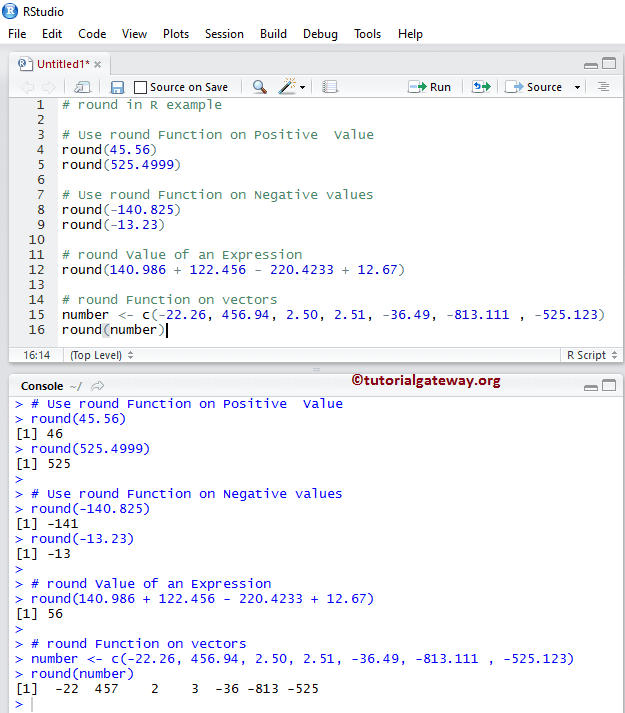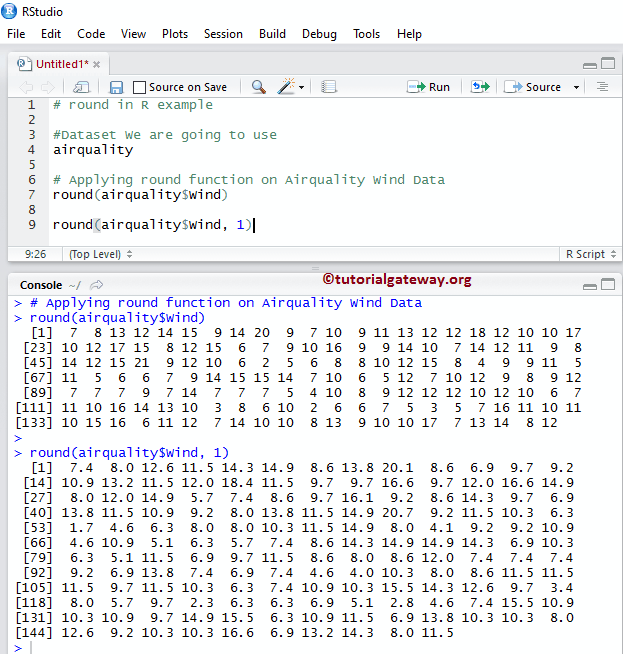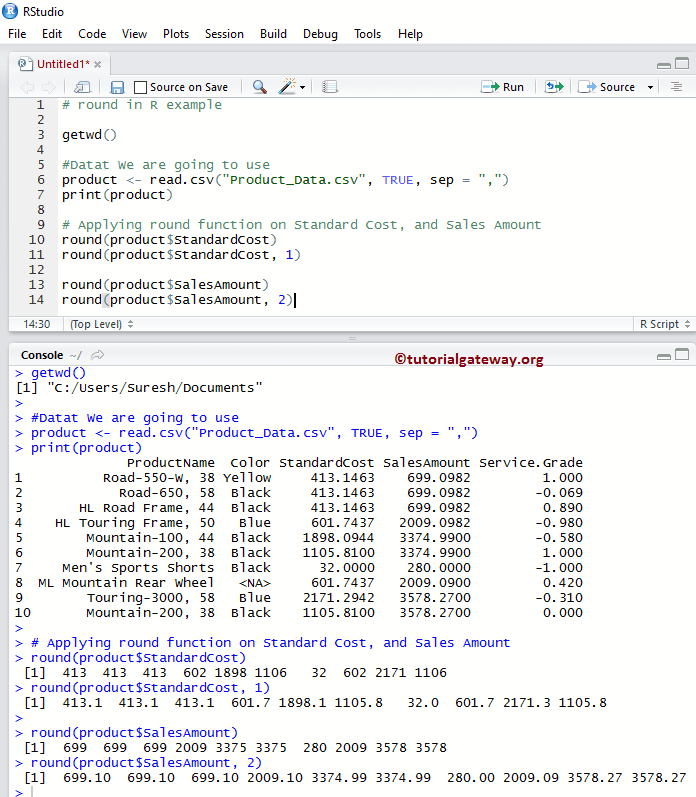R 的 round 方法是 Math 函数之一,用于将特定数字或表达式舍入到最接近的值。让我们通过一个例子来了解如何使用 round。此编程语言中 round 的语法如下所示。
# numeric_Expression to nearest value round(numeric_Expression) # decimal points to specified integer_value round(numeric_Expression, integer_value)
Numeric_Expression:它可以是数值或有效的数值表达式。
- 如果 numeric_Expression 是正数或负数,则返回最接近的上限值。
- 如果它不是数字 (NaN),则返回 NaN。如果它是正无穷大或负无穷大,函数将返回相同的值。
R round 函数示例
在此程序中,我们将返回不同数据的 round 值并显示输出。
# Use on Positive Value round(45.56) round(525.4999) # Use on Negative values round(-140.825) round(-13.23) # Expression round(140.986 + 122.456 - 220.4233 + 12.67) # on vectors number <- c(-22.26, 456.94, 2.50, 2.51, -36.49, -813.111 , -525.123) round(number)

示例 2
在此 程序 中,我们将对不同数据的十进制值进行舍入,并显示输出。
> round(45.565, 0)
[1] 46
>
> # decimal points to 1
> round(525.419299, 1)
[1] 525.4
> round(525.419299, 2)
[1] 525.42
>
> # Use on Negative values
> round(-140.825, 2)
[1] -140.82
> round(-13.239, 2)
[1] -13.24
>
> # Expression
> round((140.986 + 122.4563256 - 220.4233 + 12.67), 2)
[1] 55.69
>
> # vectors
> number <- c(-22.26, 456.94, 2.50, 2.591, -36.49, -813.111 , -525.123)
> round(number, 1)
[1] -22.3 456.9 2.5 2.6 -36.5 -813.1 -525.1R round 函数示例 3
在此程序中,我们将把 round 函数应用于 List 数据并显示输出。在此示例中,我们使用 R 提供的 airquality 数据集。
#Dataset We are going to use airquality # Applying on Airquality Wind Data round(airquality$Wind) round(airquality$Wind, 1)

此函数还允许您舍入数据库或表列中的数值。在此示例中,我们将舍入 [Standard Cost] 和 [Sales Amount] 列中的所有记录。为此,我们将使用下面显示的 CSV 文件数据。
提示:请参阅 Read CSV Function 文章以了解导入 CSV 文件涉及的步骤。
代码
getwd()
#Datat We are going to use
product <- read.csv("Product_Data.csv", TRUE, sep = ",")
print(product)
# Applying on Standard Cost, and Sales Amount
round(product$StandardCost)
round(product$StandardCost, 1)
round(product$SalesAmount)
round(product$SalesAmount, 2)
